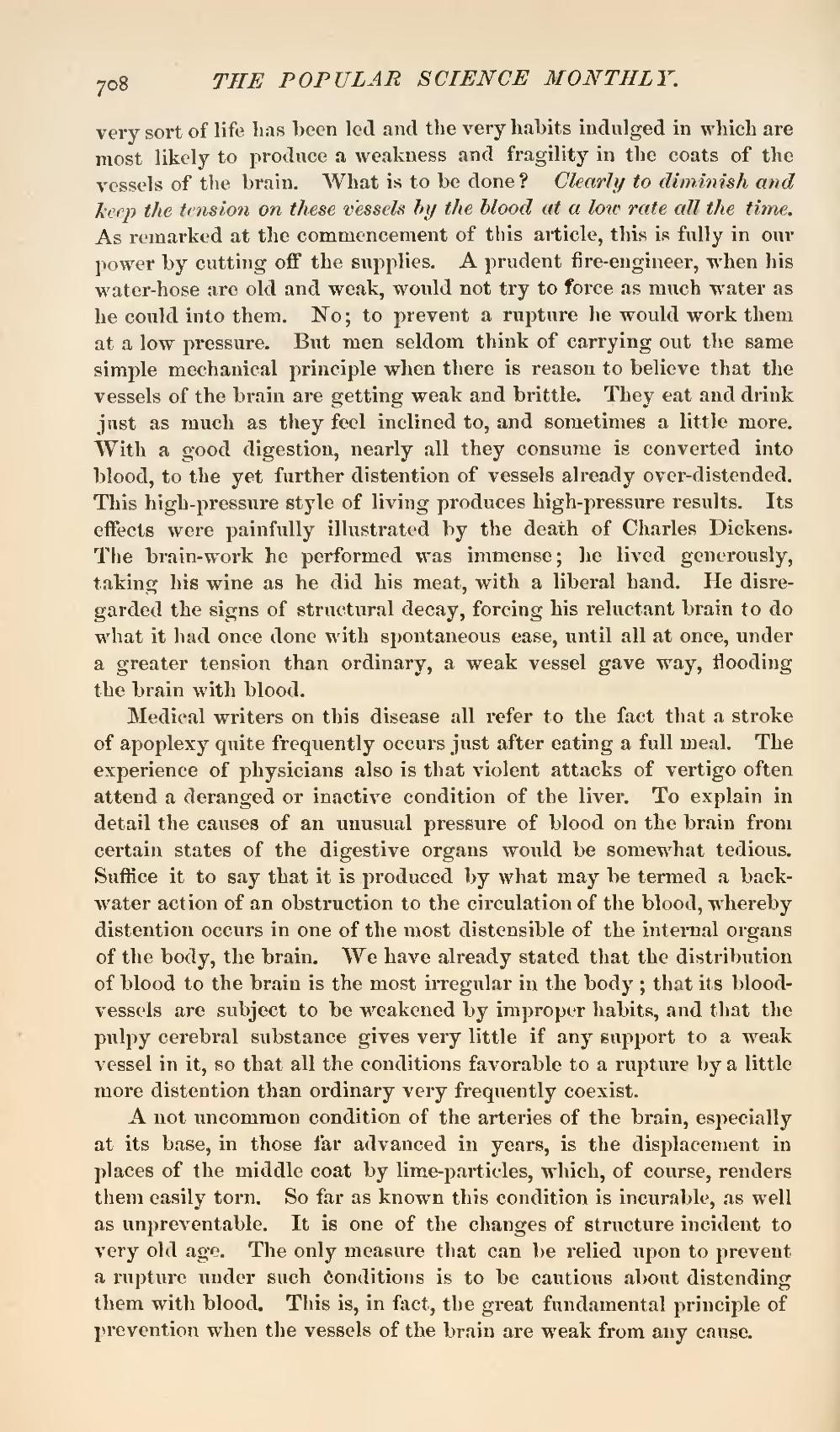very sort of life has been led and the very habits indulged in which are most likely to produce a weakness and fragility in the coats of the vessels of the brain. What is to be done? Clearly to diminish and keep the tension on these vessels by the blood at a low rate all the time. As remarked at the commencement of this article, this is fully in our power by cutting off the supplies. A prudent fire-engineer, when his water-hose are old and weak, would not try to force as much water as he could into them. No; to prevent a rupture he would work them at a low pressure. But men seldom think of carrying out the same simple mechanical principle when there is reason to believe that the vessels of the brain are getting weak and brittle. They eat and drink just as much as they feel inclined to, and sometimes a little more. With a good digestion, nearly all they consume is converted into blood, to the yet further distention of vessels already over-distended. This high-pressure style of living produces high-pressure results. Its effects were painfully illustrated by the death of Charles Dickens. The brain-work he performed was immense; he lived generously, taking his wine as he did his meat, with a liberal hand. He disregarded the signs of structural decay, forcing his reluctant brain to do what it had once done with spontaneous ease, until all at once, under a greater tension than ordinary, a weak vessel gave way, flooding the brain with blood.
Medical writers on this disease all refer to the fact that a stroke of apoplexy quite frequently occurs just after eating a full meal. The experience of physicians also is that violent attacks of vertigo often attend a deranged or inactive condition of the liver. To explain in detail the causes of an unusual pressure of blood on the brain from certain states of the digestive organs would be somewhat tedious. Suffice it to say that it is produced by what may be termed a backwater action of an obstruction to the circulation of the blood, whereby distention occurs in one of the most distensible of the internal organs of the body, the brain. We have already stated that the distribution of blood to the brain is the most irregular in the body; that its blood-vessels are subject to be weakened by improper habits, and that the pulpy cerebral substance gives very little if any support to a weak vessel in it, so that all the conditions favorable to a rupture by a little more distention than ordinary very frequently coexist.
A not uncommon condition of the arteries of the brain, especially at its base, in those far advanced in years, is the displacement in places of the middle coat by lime-particles, which, of course, renders them easily torn. So far as known this condition is incurable, as well as unpreventable. It is one of the changes of structure incident to very old age. The only measure that can be relied upon to prevent a rupture under such conditions is to be cautious about distending them with blood. This is, in fact, the great fundamental principle of prevention when the vessels of the brain are weak from any cause.
